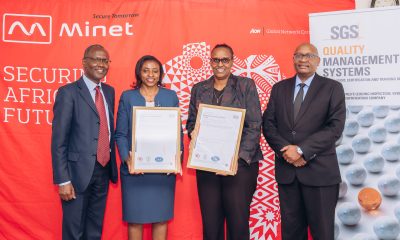Opinion
More financial support is needed to improve the management of Cerebral Palsy Cases in Kenya

By Carolyne Nekesa
While there are no official statistics around the prevalence of Cerebral Palsy (CP) in Kenya. Globally, it is estimated that between 1 and 4 out of 1,000 children suffer from this condition.
This neurological disorder is caused by damage to the developing brain before, during, and after birth, that affects movement, muscle tone, and posture. One of the most troubling aspects of CP is the stigma that individuals and households affected by CP often face.
People with the condition are in some cases shunned for reportedly being ‘bewitched’. Only a few families openly speak about their experience taking care of individuals living with CP. Misconceptions and ignorance lead to social exclusion, particularly for children who may be left out of social activities or are placed in separate educational settings simply because their needs are not well understood.
This stigma is perpetrated into adulthood, making it difficult for individuals suffering from CP to participate in gainful social-economic development activities.But a new wave of support is sweeping across Kenya.
Affected families are finding solace in communities and groups that offer a beacon of hope for children battling this neurological disorder. Communities are uniting to support families affected by Cerebral Palsy, offering hope and breaking down the stigma.
The existence of the Cerebral Palsy Society of Kenya (CPSK), thirty years since its formation, is a case in point.That said, more needs to be done to support people affected by CP. To start with, there is a need for policies that enhance accessibility and inclusivity in the education sector.
This includes creating a curriculum that not only caters to the special needs and welfare of CP children but also promotes skills development in arts such as painting, bead work, music, and participation in the Scout movement.
Secondly, more publicity needs to be given to the challenges faced and achievements made by children suffering from CP.
This could be reversed by enhancing media coverage of CP children’s successes, such as making attractive beadworks, embroidery pieces, or paintings.
The crucial skills learnt by these kids could become opportunities to earn a living where corporates procure gift hampers directly from the CP cottage industries. Highlighting achievements made by these children will effectively challenge stereotypes, thereby creating a new path that fosters a more inclusive perspective.
Thirdly, through the CP common Interest groups, Kenya can deepen early intervention mechanisms thereby helping to improve the lives of CP individuals. This could be through providing and expanding access to therapies such as physical, occupational, and speech therapy.
However, the cost of providing physiotherapy support to individuals living with CP is out of reach for many as one physiotherapy session costs up to KShs. 4,000. This excludes the cost of drugs administered to individuals with the condition.
This issue requires coverage in the Social Health Insurance Fund given that CP is a chronic disease. Fortunately, there are programmes being undertaken by CP care homes in which local corporates are making financial contributions to CP caregivers.
For instance, Minet Kenya’s partnership with the Cerebral Palsy Society of Kenya (CPSK), which started in 2014, has extended support towards the rehabilitation of 30 children whose developmental milestones are well documented.While common interest group members seek to offer support to CP families at almost no cost, more is still required to support children living with CP as well as their caregivers.
This can go a long way towards enabling individuals living with CP to live comfortably regardless of the difficulties they experience.
But there is need for more conversations that revolve around raising awareness, pushing for policy changes, and promoting inclusivity to ensure children with CP lead fulfilling lives.
Together, we can create a more supportive and inclusive environment for individuals living with cerebral palsy, helping them to reach their full potential.
Carolyne Nekesa is the Associate General Manager- Marketing at Minet Kenya







You must be logged in to post a comment Login